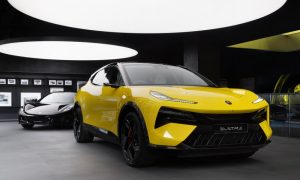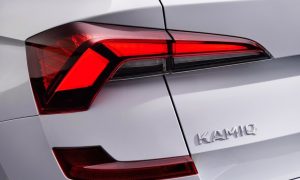
An online YouGov study of 1,731 UK drivers commissioned by The Motor Ombudsman has revealed that six in ten (61%) respondents would consider getting behind the wheel of an electric car if they were to purchase a new or used vehicle in 2022. The poll conducted by the Ombudsman for the automotive sector, also showed that 18 to 24-year-olds would be the most likely to turn to battery power for their next car, with 79% of this age group saying they would opt for this type of propulsion.
When individuals considering an electric car were asked about the key factors that would influence their decision to buy this type of vehicle next year, 59% said that the UK’s growing charging network would be an important reason. The greater choice of electric models now available (42%) was seen as the next biggest factor, with 39% of citing the fact that a decision to go electric was due to the cost of unleaded and diesel increasing significantly, prices which have reached their highest level in eight years*. Similarly, petrol station closures and the unavailability of fuel at the pumps was the fourth most stated factor to go electric (22%), whilst avoiding incurring future charges as a result of the expansion of London’s Ultra Low Emission Zone (ULEZ) later this month, was specified by 15% of those looking to go electric.
When quizzed about their other principal motivations for going electric in 2022, around two thirds (68%) of drivers who would consider a purely battery-driven car next year, said that this this type of vehicle was better for the environment, whilst 39% explained that electric cars could be charged on their driveway at their own convenience. Similarly, nearly one in three (29%) stated that an electric car would suit their lifestyle in terms of their low monthly mileage and driving mainly in urban areas, whilst nearly a quarter (24%) felt that deciding to go electric would set a good example to others. Furthermore, around a fifth (19%) acknowledged that owning an electric car would require the maintenance of fewer moving parts and the topping up of less fluids when compared to running a vehicle with an engine.
Bill Fennell, Chief Ombudsman and Managing Director of the Motor Ombudsman, said: “As our study has shown, electric vehicles are fast becoming a leading choice for motorists when buying a car, thanks in part to the growing charging network and the greater choice of models now on the market. However, current events, such as the rising cost of petrol and diesel at the pumps, the unavailability of fuel, as well as the expansion of the Ultra Low Emission Zone in the London area, are clearly front of mind for consumers, and are playing their part in the decision regarding what type of car to get next.”
Bill added: “What is important when buying any kind of car, not solely an electric model, is that our popular online Garage Finder is consulted as one of the first steps in the purchase process, to ensure that the independent retailer or franchise dealer is accredited to our comprehensive Vehicle Sales Code. With cars often being the second largest expense after a property, choosing a seller signed up to the Code of Practice gives consumers the added peace of mind that a business is committed to providing them with the very highest levels of quality and service at all times.”



